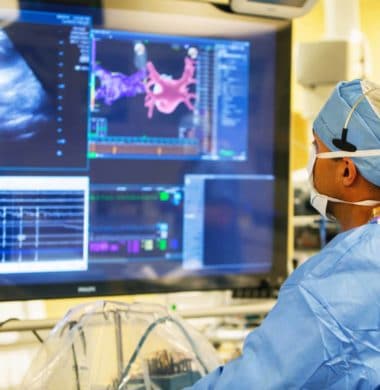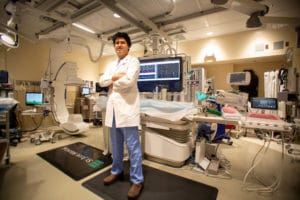What Is an Electrophysiologist?

Your heart is a complicated organ. Many aspects of your heart’s function have to work together for your heart to maintain healthy, regular function. Heart doctors specialize in different aspects of heart function to better understand and improve your heart’s health. An electrophysiologist is a heart doctor who focuses on the nerves that control your heart, especially on their rhythms and harmonious cooperation. An electrophysiologist can diagnose and treat disorders that affect the healthy beating of your heart, such as irregular heartbeats (arrhythmias).
What an Electrophysiologist Does
Electrophysiologists perform diagnostic tests on your heart to ensure it’s beating properly. If the heart isn’t beating properly, an electrophysiologist can perform treatments to restore healthy heartbeats.
Distinguishing Heart Palpitations from Arrhythmias
 Heart palpitations are feelings that your heart is beating in an unusual way. You might feel that your heart is beating excessively fast, very hard, or is fluttering. You might feel like you have an extra heartbeat or that your heart is skipping a beat.
Heart palpitations are feelings that your heart is beating in an unusual way. You might feel that your heart is beating excessively fast, very hard, or is fluttering. You might feel like you have an extra heartbeat or that your heart is skipping a beat.
When you experience heart palpitations, it’s usually nothing to worry about. Stress, medication, or even food might trigger heart palpitations. However, your heart palpitations may be a symptom of a dangerous, even deadly arrhythmia (irregular heartbeat). How do you tell the difference?
That’s where an electrophysiologist comes in. An electrophysiologist can perform tests that distinguish between harmless heart palpitations and dangerous heart arrhythmias.
A wearable heart monitor might give us enough information to identify arrhythmias or show that your heart rhythms are healthy. However, sometimes we need more information to understand what’s happening in your heart. That’s when an electrophysiologist might order an electrophysiology study.
In an electrophysiology study, we insert electrodes into your heart to monitor the electric currents moving through the heart. Normal heart function requires electrical currents that move through the heart in a certain way, stimulating each chamber of the heart to pump in turn. An electrophysiology study can tell us when the currents aren’t moving correctly through the heart, including when you might have a region that is creating problematic currents of its own that interfere with your heart’s normal rhythm.
Treating Arrhythmias
 Once an electrophysiologist identifies the type of arrhythmia you experience, they will decide on the proper treatment. Sometimes, lifestyle modifications are sufficient. Increased exercise, a better diet, and improved mental health can go a long way to treating palpitations and some arrhythmias.
Once an electrophysiologist identifies the type of arrhythmia you experience, they will decide on the proper treatment. Sometimes, lifestyle modifications are sufficient. Increased exercise, a better diet, and improved mental health can go a long way to treating palpitations and some arrhythmias.
Other times, an electrophysiologist might recommend more active treatment. If you have a region of your heart that’s creating problematic electric currents, an electrophysiologist might recommend ablation therapy. Ablation therapy burns away the area creating the problematic current.
Electrophysiologists also use pacemakers to stimulate your heart to beat more quickly. A related tool is an implantable cardioverter-defibrillator (ICD), which can not only speed your heart rhythms but can also slow it down.
Maintaining Healthy Heart Rhythms in Denver
At South Denver Cardiology, we have numerous electrophysiologists that can help if you’re concerned about heart palpitations. Our team of consists of some of the finest trained and experienced electrophysiologists on the Front Range, including:
We can evaluate your heart rhythms to determine whether you need additional treatment because of a dangerous arrhythmia. We can also tell you if you’d benefit from the Watchman device, which closes off a source of blood clots in your heart. When you have the arrhythmia atrial fibrillation (A-fib), your heart might draw the blood clots out, causing a stroke. The Watchman device can reduce your stroke risk by sealing off this area without relying on blood thinners, which have their own associated risks.
Please call 303-744-1065 or use our online form to request an appointment with an electrophysiologist at South Denver Cardiology. You can schedule an appointment at our central office in Littleton or one of our other locations across the region.
- Can I Shovel Snow with a Heart Condition? - March 18, 2024
- 6 Tips for Resuming Outdoor Exercise this Spring - March 11, 2024
- Early Signs of Heart Disease - February 26, 2024
Sign Up
As with any health concerns, your specific treatment program should be discussed thoroughly with your primary care physician as well as any specialists who may need to be consulted – like a cardiologist.
Sign Up
